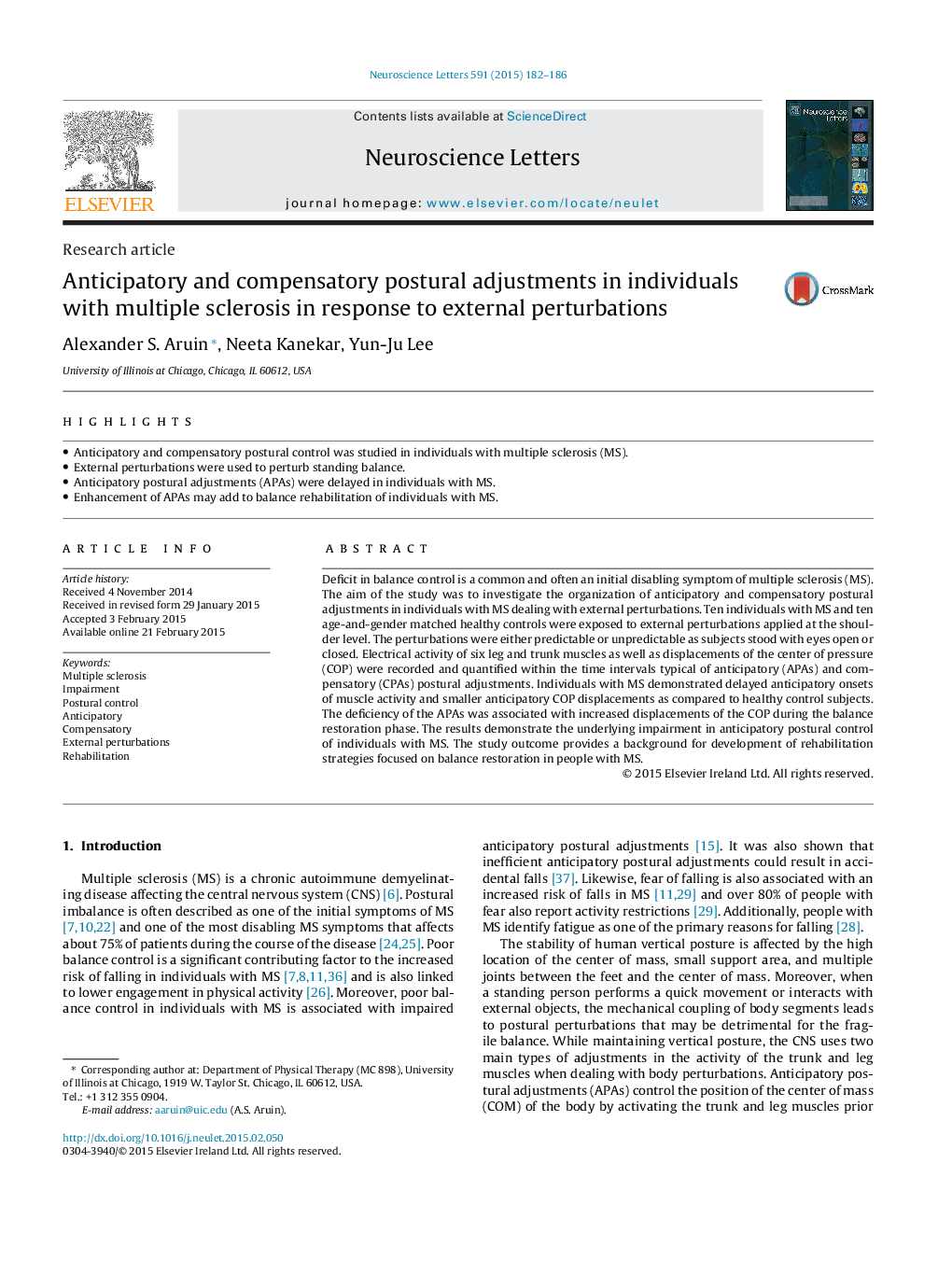| Article ID | Journal | Published Year | Pages | File Type |
|---|---|---|---|---|
| 6280919 | Neuroscience Letters | 2015 | 5 Pages |
â¢Anticipatory and compensatory postural control was studied in individuals with multiple sclerosis (MS).â¢External perturbations were used to perturb standing balance.â¢Anticipatory postural adjustments (APAs) were delayed in individuals with MS.â¢Enhancement of APAs may add to balance rehabilitation of individuals with MS.
Deficit in balance control is a common and often an initial disabling symptom of multiple sclerosis (MS). The aim of the study was to investigate the organization of anticipatory and compensatory postural adjustments in individuals with MS dealing with external perturbations. Ten individuals with MS and ten age-and-gender matched healthy controls were exposed to external perturbations applied at the shoulder level. The perturbations were either predictable or unpredictable as subjects stood with eyes open or closed. Electrical activity of six leg and trunk muscles as well as displacements of the center of pressure (COP) were recorded and quantified within the time intervals typical of anticipatory (APAs) and compensatory (CPAs) postural adjustments. Individuals with MS demonstrated delayed anticipatory onsets of muscle activity and smaller anticipatory COP displacements as compared to healthy control subjects. The deficiency of the APAs was associated with increased displacements of the COP during the balance restoration phase. The results demonstrate the underlying impairment in anticipatory postural control of individuals with MS. The study outcome provides a background for development of rehabilitation strategies focused on balance restoration in people with MS.
